
Transforming the Education Ecosystem for Equity
Dismantling systemic racism in elementary education











Program Overview
The Challenge
American public schools perpetuate systemic racism and educational inequity. Teachers, the resources they use, and parents/caregivers are the key influences in a child’s education. Many teachers, 80 percent of whom are white, lack the training to facilitate culturally responsive learning environments for the 53 percent of public school students who are children of color. Educational resources depict whiteness as the norm, devaluing children who are not white, overemphasizing the importance of those who are, and enforcing dominant narratives and racist paradigms. As a result, students of color are less engaged in education, less interested in reading, and less likely to succeed academically, leading to large achievement gaps between white and non-white children. The compound effect of teachers’ conscious and unconscious bias, systemic racism, and the lack of cultural relevance and diverse representation in children’s books creates achievement gaps that can be bridged only with an integrated intervention.
The Solution
We will intervene to transform the PreK-4 education ecosystem for equity by:
- Prepare educators to create anti-bias anti-racist classrooms through new standards, pre-service preparation, and micro-credentialing;
- Increase the volume and affordability of #OwnVoices books;
- Get millions of these books to low-income communities; and
- Engage parents to ensure that diverse titles are read in school and at home.
Over the next 10 years, we will focus this intervention primarily on five school districts: NYC Public Schools, Chicago Public Schools, Detroit Public Schools, Quitman School District (MS), and Albuquerque Public Schools. And while both target area and timeframe are initially defined, embedding antiracism in teacher preparation and making resources available nationally make our approach one of continuing expansion that will transform the PreK-4th grade education ecosystem for equity.
The Outcome
Black and Hispanic children will have measurable improvements in academic achievement and racial identity.











Racial equity is not possible without education equity.











1. Prepare educators to create anti-bias anti-racist classrooms through new standards, pre-service preparation, and micro-credentialing.
In a 2019 survey conducted of educators registered with First Book, most said they were moderately knowledgeable and somewhat comfortable talking about race. However, a total of 66 percent said they would like to more proactively engage their students in conversations about race.
First Book: Empowering Educators
In response to survey findings from the First Book Network of educators, First Book created Empowering Educators, a multi-year initiative featuring a series of free resources designed to support educators in having effective, courageous conversations about race.
The series was launched with a half-day webinar, and includes a guidebook, instructional videos, and other pedagogic resources informed by leading anti-bias and antiracism experts: Britt Hawthorne, Tiffany Jewell, Liz Kleinrock, Cornelius Minor, Catherine Wigginton Greene, and Christine Platt.











First Book Resources on Race and Racism
Free for Any Educator
Backed by First Book’s Research & Insights, the Guidebook includes answers to the most common questions asked by First Book members in our 2019 survey on how to discuss race and racism with students. A multi-part video series includes conversations with our subject matter experts, with recommendations and encouragement for how teachers can incorporate antiracist pedagogy.
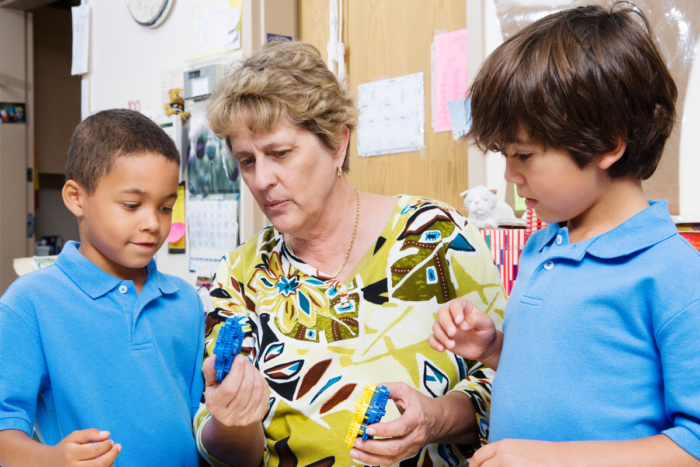












NCTE: Developing standards and leading in anti-racist teaching
The National Council of Teachers of English (NCTE) has led every movement in the teaching of English and literacy since 1911. For decades NCTE has advanced the causes of diversity, equity, inclusion, and antiracism through the teaching and learning of literacy and the English language arts (ELA). NCTE’s ELA standards for middle/secondary school are embedded in teacher preparation programs at over 200 college and universities nationwide. Through its position statements, publications, programs, groups, and initiatives, NCTE has reflected and valued the lives of students and educators at all levels, recognizing that their individual and shared cultures and experiences are foundational to the development of a critically informed, engaged, and just society.
NCTE Resources on Race and Racism
Recent Books, including In the Pursuit of Justice: Students’ Rights to Read and Write in Elementary School and Linguistic Justice: Black Language, Literacy, Identity, and Pedagogy by April Baker-Bell, both published in 2020.
Select Themed Publications, including Exploring Color Hierarchies (March 2019) and Equity and English: Constructing a Just future from English Journal and Language, Learning and Linguistic Diversity from Language Arts.
Programs and Awards, including the Early Career Educators of Color Leadership Program (established 2008), Cultivating New Voices Among Scholars of Color (established in 2004), Professional Dyads and Culturally Relevant Teaching, and the African American Read-In (established in 1990).
Groups such as our caucuses and the Committee Against Racism and Bias in the Teaching of English (established in 1970).
Position Statements and Resolutions, including the most recent, This Ain’t Another Statement! This is a DEMAND for Black Linguistic Justice! and Position Statement on Indigenous Peoples and People of Color (IPOC) in English and Language Arts Materials (both in 2020).
Teachers need to be able to identify when their interactions with students are shaped by implicit bias, and to take steps to counteract this.
Putman, H. | Meeting the Moment: Preparing Teachers to Teach for Equity | National Council on Teacher Quality











2. Increase the volume and affordability of #OwnVoices books.
As the world becomes smaller and increasingly diverse in its cultures and experiences, it is crucial that all children have access to books that serve as both windows and mirrors. In a survey of the educators First Book serves, 90 percent of respondents agreed that the children they serve would be more enthusiastic readers if they had access to books with characters and stories that reflect their lives. Kids who see their own experiences reflected in books gain self-confidence, while reading about experiences that differ from their own helps kids develop healthy curiosity and empathy. But there is a persistent lack of diversity in children’s book authors and content – only 15% of children’s books feature diverse characters and cultures, and many of those are not affordable because they are only available in hardback. That is why we created the Stories for All Project™ – to ensure that children in need have access to stories that are relevant and reflect their lived experiences.
What are #OwnVoices books?
The term and hashtag refers to books whose characters reflect the culture, experiences, and identity of the author.
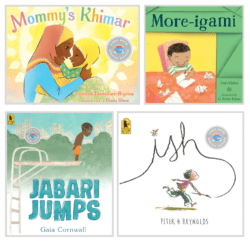

In recent years, First Book has begun to bring popular titles for children 0-8 years old – such as Mommy’s Khimar, Jabari Jumps, More-Igami, and Ish – into more affordable paperback versions to further increase access to high quality, #OwnVoices books. Through Transforming the Education Ecosystem for Equity, we will significantly expand the volume and range of titles available at low-cost to educators serving kids in need. By increasing the demand for diverse titles, we further anticipate that market forces will drive the publishing industry to publish more #OwnVoices titles, giving all kids the chance to see themselves in books.
The motivation of [the Stories for All Project™] was the chasm between the number of people who want such books and what is available.
Kyle Zimmer, President, CEO & Co-Founder, First Book











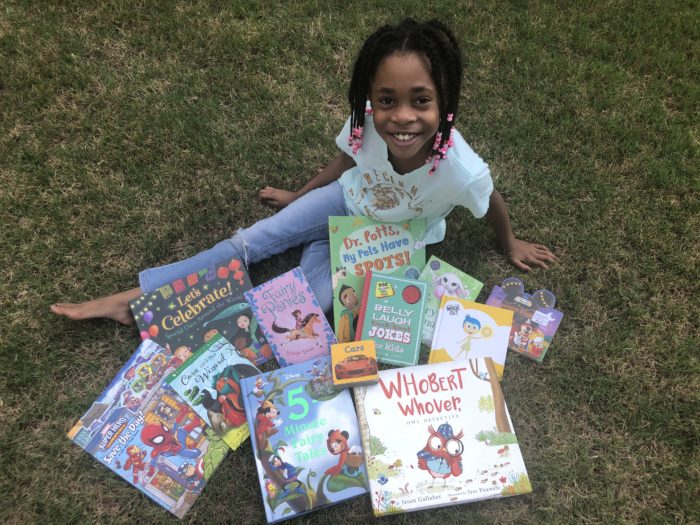

The Stories for All Project: The Marketplace’s #OwnVoices Books
Hundreds of great diverse and inclusive children’s titles available.
First Book strives to provide all kids with diverse books that act as mirrors and windows. Kids feel valued and validated when they see their own experiences reflected on the pages of books, and they develop curiosity and empathy when they read about experiences different from their own. To help your kids grow as both readers and global citizens, shop our ever-expanding selection of diverse books.











3. Get millions of these books to low-income communities.
First Book aims to remove barriers to quality education for all kids by making everything from brand new books to school supplies, basic needs items, digital learning resources, and more available, exclusively for kids in need.
600,000+ educators, millions of children, millions of books
Since 1992, First Book has distributed more than 250 million books and educational resources to programs and schools serving children from low-income communities through First Book’s Marketplace. With more than 600,000 educators in its Network, First Book currently reaches an average of 6.5 million children every year.
Through this project, First Book will work with publishers and partners to produce and distribute more than 8 million special-edition books in low-cost formats, featuring diverse characters and positive racial narratives, into low-income communities.











4. Engage parents to ensure that diverse titles are read in school and at home.
First Book will partner with direct-service and out-of-school organizations and execute an awareness campaign, engaging parents to increase diverse titles at home and to advocate for structural change at school. Parents will have tools to support their children’s social-emotional and academic development. Students of color will demonstrate improved academic outcomes and higher self-esteem.
Our work with Molina Healthcare
In partnership with Molina Healthcare, First Book developed “Healthy Mind, Healthy Body,” a comprehensive effort to provide new, high quality resources focused on social and emotional development—an area identified by First Book’s membership of educators and program leaders as a top health education priority, outranking even substance abuse and gun violence.
The initiative included two age-appropriate collections of children’s books, curated by First Book; an expanded Health and Wellness section on the First Book Marketplace; and tip sheets developed in collaboration with Collaborative for Academic, Social, and Emotional Learning (CASEL). The partnership also yielded bilingual public service announcements (English/Spanish)that were among the top one percent of PSAs aired in 2017 – with more than 112 million impressions.
Other Partners
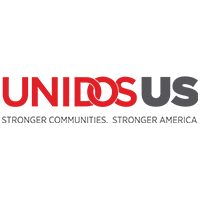












About Our Partnership
Through First Book and NCTE’s relationships, expertise, and field leadership, the team is uniquely positioned to deliver the proposed systems transformation—fully informed, led, and utilized by the field.
About First Book
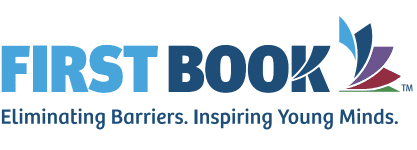

Founded in 1992 as a 501(c)3 nonprofit social enterprise, First Book is building a path out of poverty through educational equity. Our purpose is as bold as it is urgent: To create systemic change. To ensure equal access to quality education. To empower every educator and all the children in need who they serve.
About NCTE
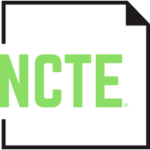

The National Council of Teachers of English (NCTE), the professional home of English language arts, has led every movement in the teaching of English and literacy since 1911. NCTE’s mission is to promote the development of literacy and the use of language to construct personal and public worlds and to achieve full participation in society. NCTE’s vision aligns teacher and literacy scholar expertise to advance access, power, agency, affiliation, and impact for all learners. A commitment to racial equity and a track record for pursuing action on this issue extends back more than fifty years. NCTE publishes eleven journals and ten to fifteen books annually in service of scholarship and practice for literacy and English teachers and their students. NCTE’s Annual Convention is the nation’s largest annual literacy event. NCTE shapes the conversations and priorities on literacy and language as the disciplinary leader, including the establishment of teaching standards. NCTE’s network also includes sixty-five state or regional affiliates, a Research Foundation, five large special interest conferences, active assemblies ranging from young adult literature to journalism education, and much more. NCTE also partners with influential consortia spanning scholarly societies, to anticensorship coalitions, to iconic cultural institutions.
Additional Educator Resources
Explore other toolkits and free resources that First Book regularly creates and shares with educators.
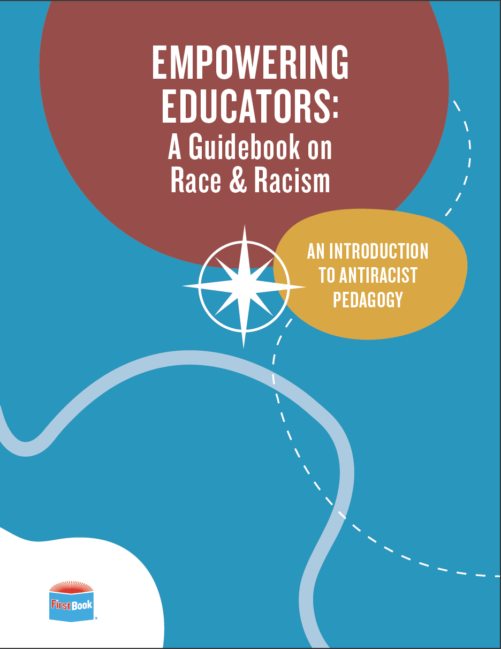

Guidebook on Race and Racism
This expert-informed guidebook is designed to help educators have courageous conversations with learners of all ages.


Stories For All Project™
Educators can shop featured stories or explore curated categories to help learners of all ages feel seen in the classroom.
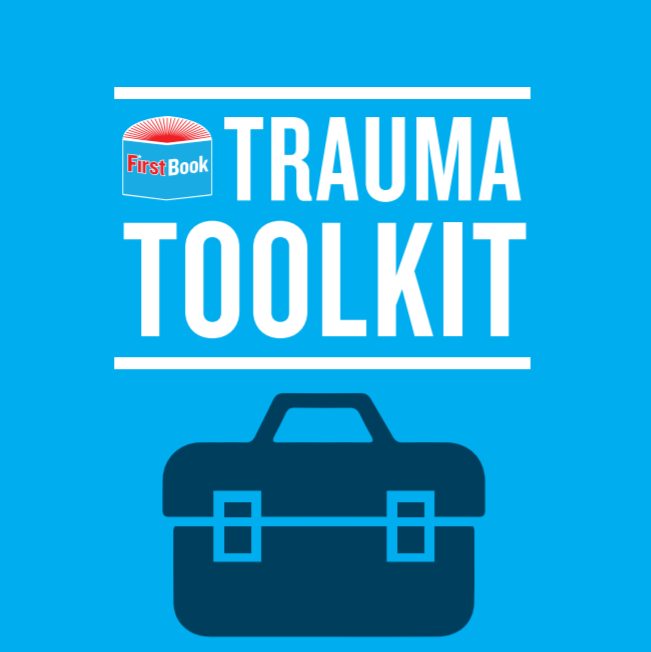

Trauma Toolkit
Tools to address how childhood trauma affects a student’s ability to learn, best practices to support their development, the importance of educator self-care, and more.
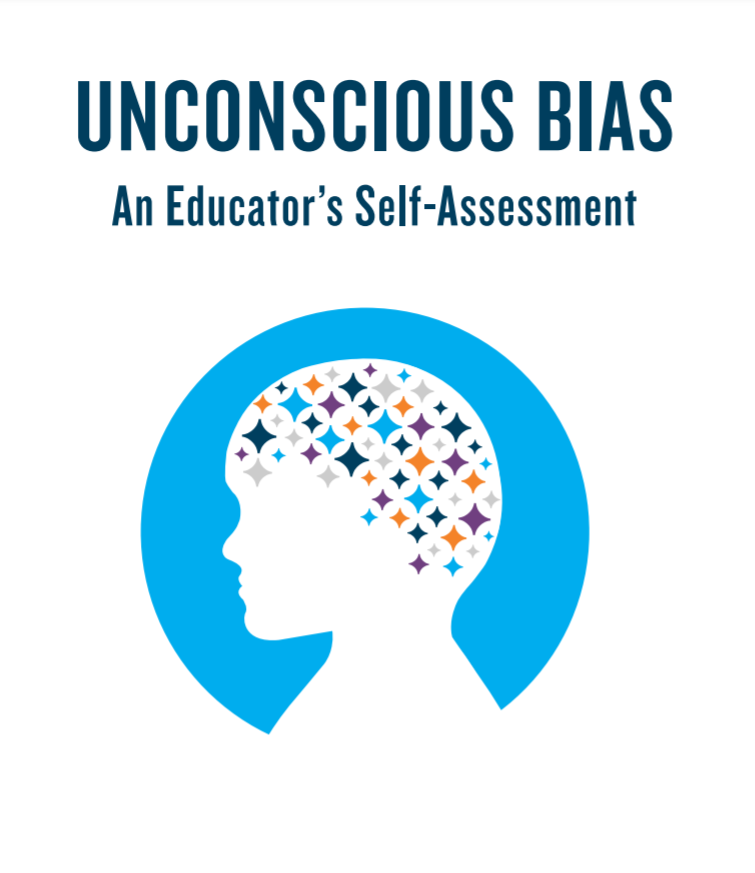

Unconscious Bias
A confidential self-assessment to discover where you may hold unconscious bias and learn strategies to reduce its impact.
